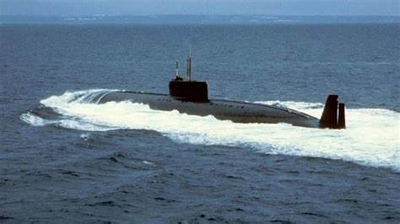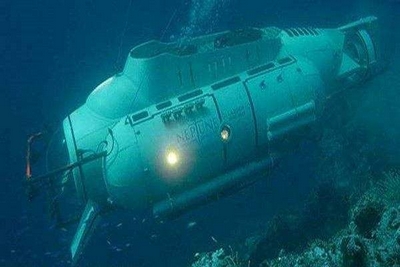Titanium has strong acid and alkali corrosion resistance. It is stainless in seawater for 5 years, and steel will corrode and deteriorate in seawater. The submarine made of titanium alloy can resist both sea water corrosion and deep pressure, and its submarine depth is 80% higher than that of stainless steel submarine. At the same time, titanium is non-magnetic, will not be found by mines, and has a good anti-monitoring effect. Generally, steel submarines submerged more than 300 meters are vulnerable to water pressure damage. Titanium submarine submerged more than 300 meters deep will not be crushed, but also effectively avoid the attack of deep-water bombs, showing the unique charm and excellent performance of the “Titanium submarine”. Titanium is an irreplaceable material for naval vessels in deep sea area. It can be seen that titanium used in ship industry will become a new bright spot in the development of titanium industry. Russia successfully manufactured all-titanium submarines as early as 1968. More than 30 years later, the Titanium submarine is still swimming in the oceans. Since the mid-1960s, Russia has produced 6 to 7 double-deck high-pressure hull “Alpha” class all-titanium submarines, each of which uses 3000 tons of titanium. Alpha attacking submarine uses advanced titanium alloy as shell material, and its maximum submarine depth is up to 900 meters. Japan is also the first country in the world to engage in the application of titanium materials in warships. It has accumulated a lot of experience in the application of civil cruise ships and fishing vessels. Jiaolong of our country has realized the dream of “daring to catch turtles from five oceans”, which shows the excellent quality of titanium metal. Titanium metal is widely used in marine engineering, especially for light marine equipment. It is one of the new key materials in the field of marine engineering. Therefore, making full use of the marine material – titanium and titanium alloy will contribute to the development of national marine strategy.


Characteristics of Titanium Suitable for Marine Environment
- Titanium with low density, high strength and high specific strength has a density of 4.51g/cm3, which is 57% of steel. Titanium has a proportion less than twice that of aluminium, and its strength is three times that of aluminium. The specific strength of titanium is the largest in common industrial alloys. High specific strength can promote the miniaturization and lightweight of marine equipment, increase the speed, buoyancy and maneuverability of submarines, and increase the depth and payload of deep submarines. Therefore, titanium is an indispensable key structural material for marine engineering.
- Excellent corrosion resistance
Titanium is the best corrosion resistant material known at present, even in polluted seawater, hot seawater (below 120 C), sea mud and flowing seawater, it has good corrosion resistance. Its excellent corrosion resistance is due to its good self-passivation. When damaged to some extent, the surface oxide film or passivation film can be repaired and restored quickly by itself. That is to say, in the ocean, titanium is almost non-corrosive. There is a strong and tough oxide film on the surface of titanium, so its corrosion resistance is better than that of other metals.
In the design of anti-corrosion equipment, it can greatly reduce the corrosion margin in the thickness direction of bearing structural parts and save construction materials; anti-corrosion equipment can be designed with the same life as the main body, reduce maintenance frequency, greatly reduce maintenance costs, and enhance the service capacity of equipment; titanium equipment does not need coating when used in the ocean. The protection simplifies the manufacturing process, shortens the construction period and reduces the manufacturing cost.
- Resistance to seawater erosion and cavitation
Most materials have a critical velocity, beyond which the oxide film on the surface will be washed away and corrosion will accelerate. This accelerated corrosion is erosion corrosion. The erosion and corrosion resistance of titanium pipeline is much higher than that of copper and copper alloy pipeline, and the critical velocity of titanium in seawater is more than 27 m/s. Various erosion corrosion tests show that titanium is very resistant to this corrosion. Titanium permits the manufacture of pipeline systems with smaller diameter, thinner wall and higher flow rate to achieve miniaturization and lightweight equipment. At the same time, the anti-cavitation experiment shows that titanium is one of the most anti-cavitation metals.
- Green recycling
Titanium metal products have a long service life in marine environment. After being discarded, they can be processed into lower-grade titanium alloy materials for use, with little weight loss and high recovery rate.
- High impact resistance
Titanium and titanium alloys have the best impact resistance, which is conducive to the ability of marine equipment to withstand the periodic impact of sea waves and improve the safety and reliability of equipment.
- No magnetism
Titanium is nonmagnetic and is very suitable for minimizing electromagnetic interference. For submarines, it can greatly reduce the magnetic physical field effect of submarines, thus reducing the possibility of their detection by anti-submarine aircraft magnetic detectors; for titanium ships and naval vessels, it can increase concealment and avoid being attacked by magnetic mines. For submarine hull, it will not cause mine explosion. At the same time, it is also conducive to improving the anti-magnetic interference ability of detection instruments and tools and ensuring the accuracy of signals.
- High Permeability
Titanium is used as sonar dome material for submarines and aircraft carriers, which can improve the sonar detection sensitivity and detection distance of equipment, and improve the efficiency and safety reliability of equipment.
- Excellent Processing Performance
Titanium metal has good machinability and can be made into practical engineering materials of various shapes and specifications, including titanium plate, titanium rod, titanium tube, titanium wire, titanium strip, titanium foil, titanium forgings, castings, weldments, etc. Most titanium and its alloys have good weldability, and the strength coefficient of weld seam can reach more than 0.9; Delayed cracks usually occur in the equipment without post-weld heat treatment, which is conducive to the construction of large-scale engineering equipment such as ships and marine engineering.
